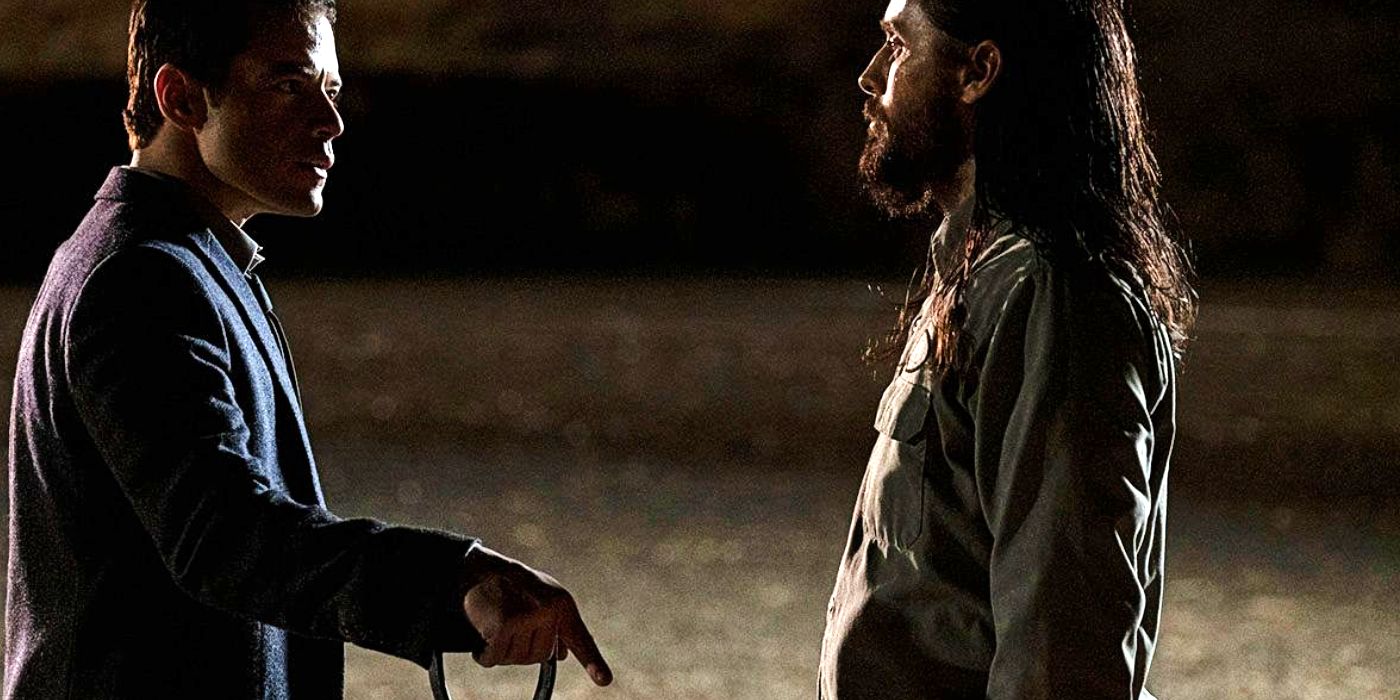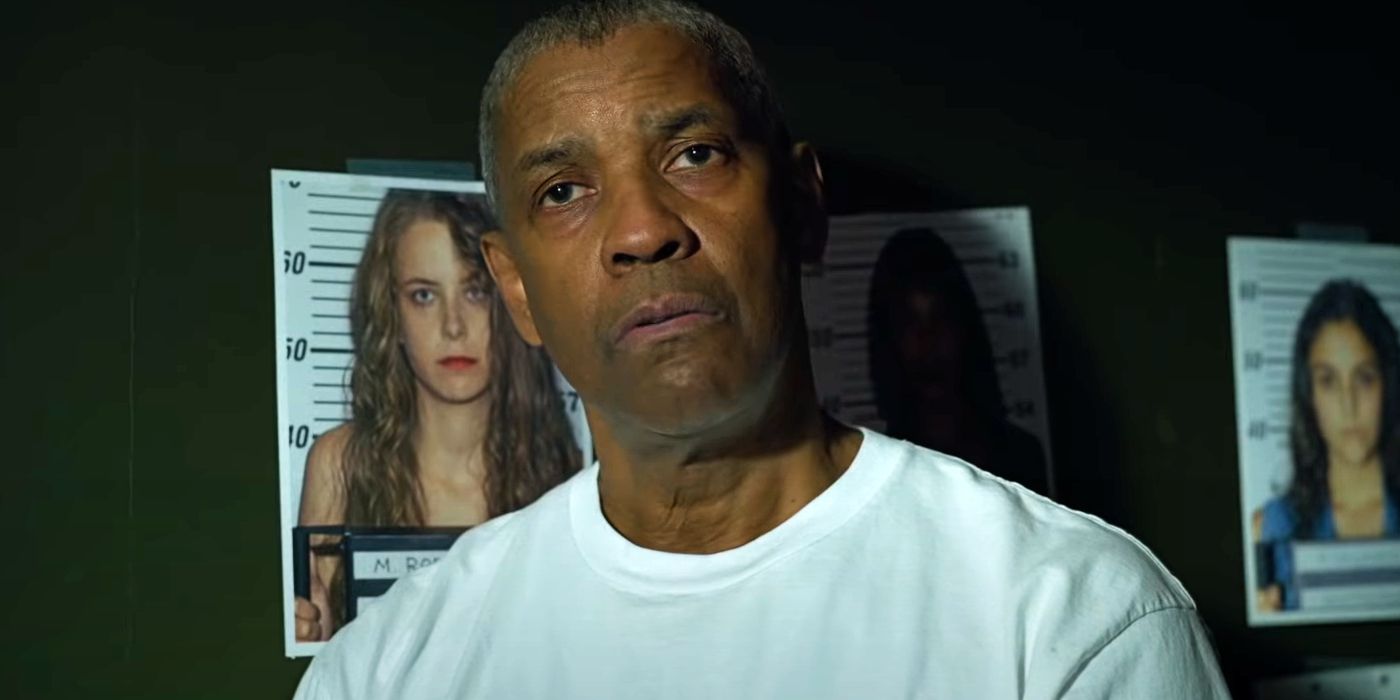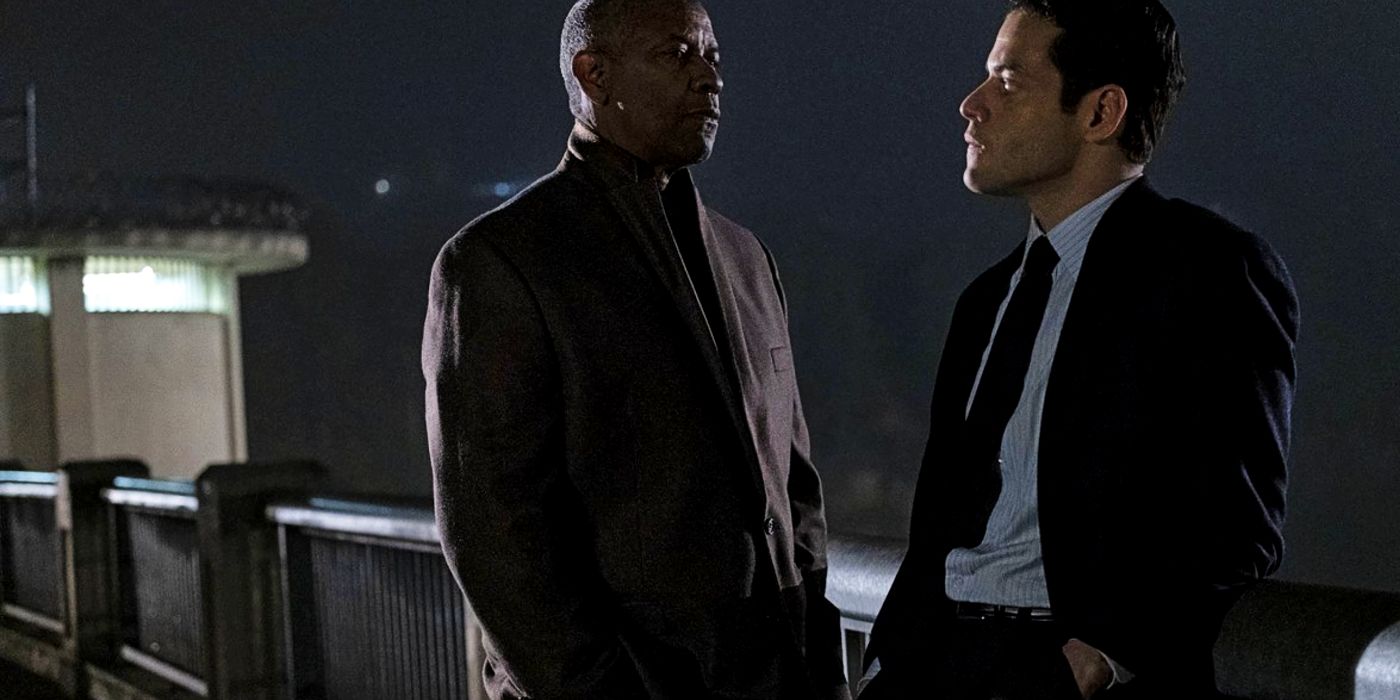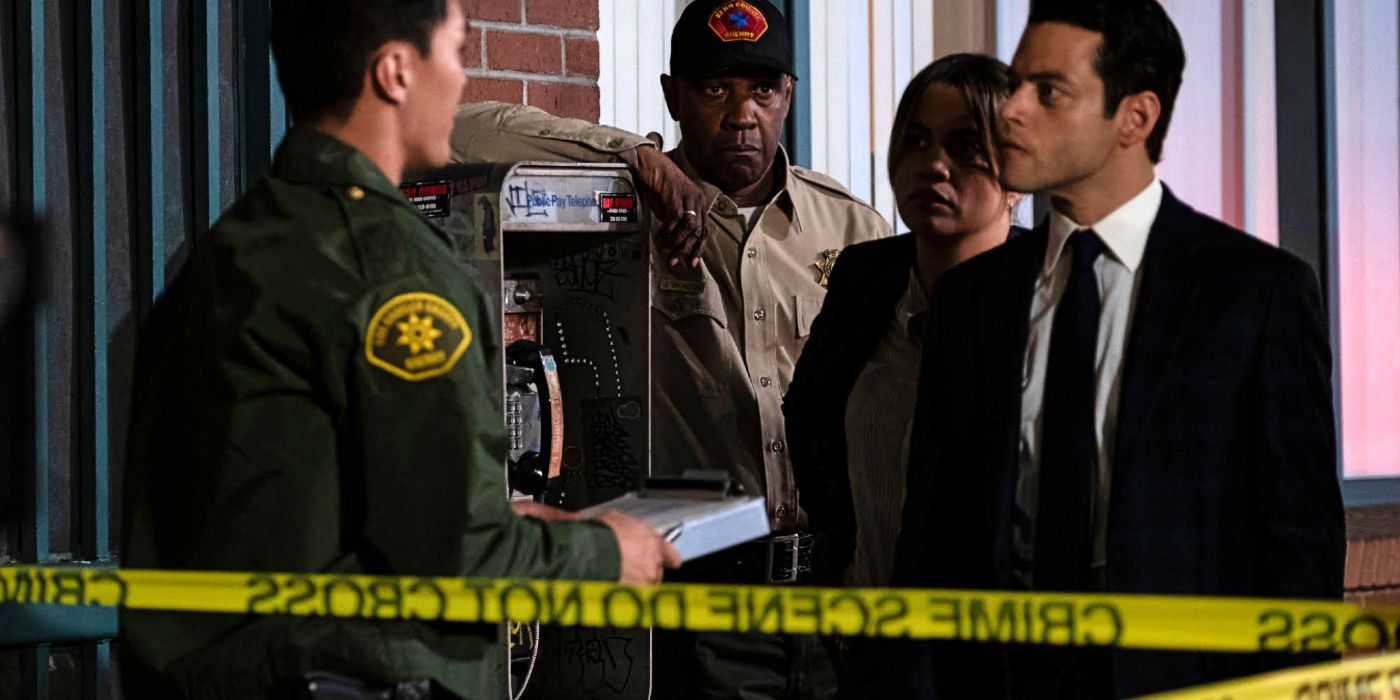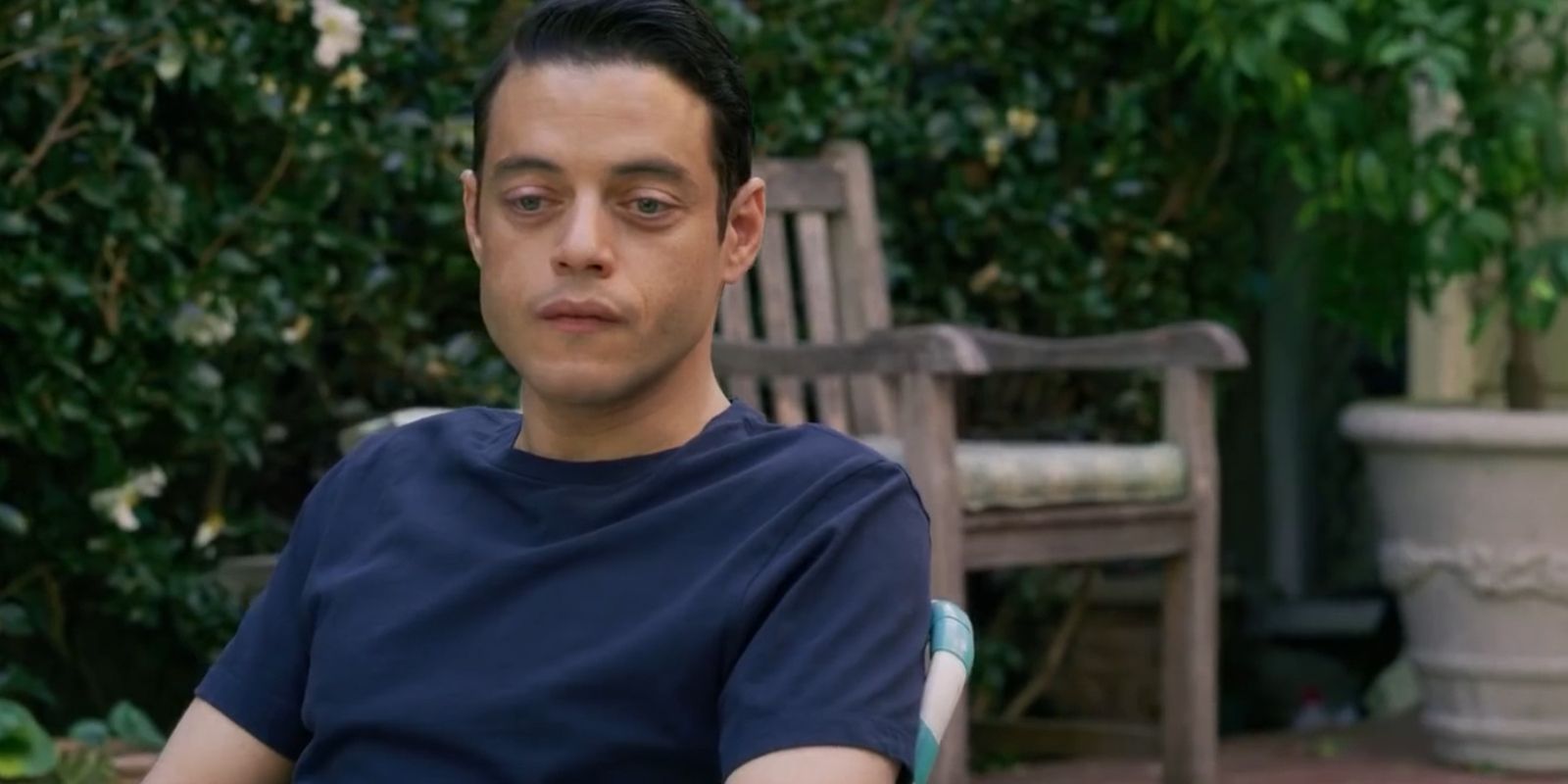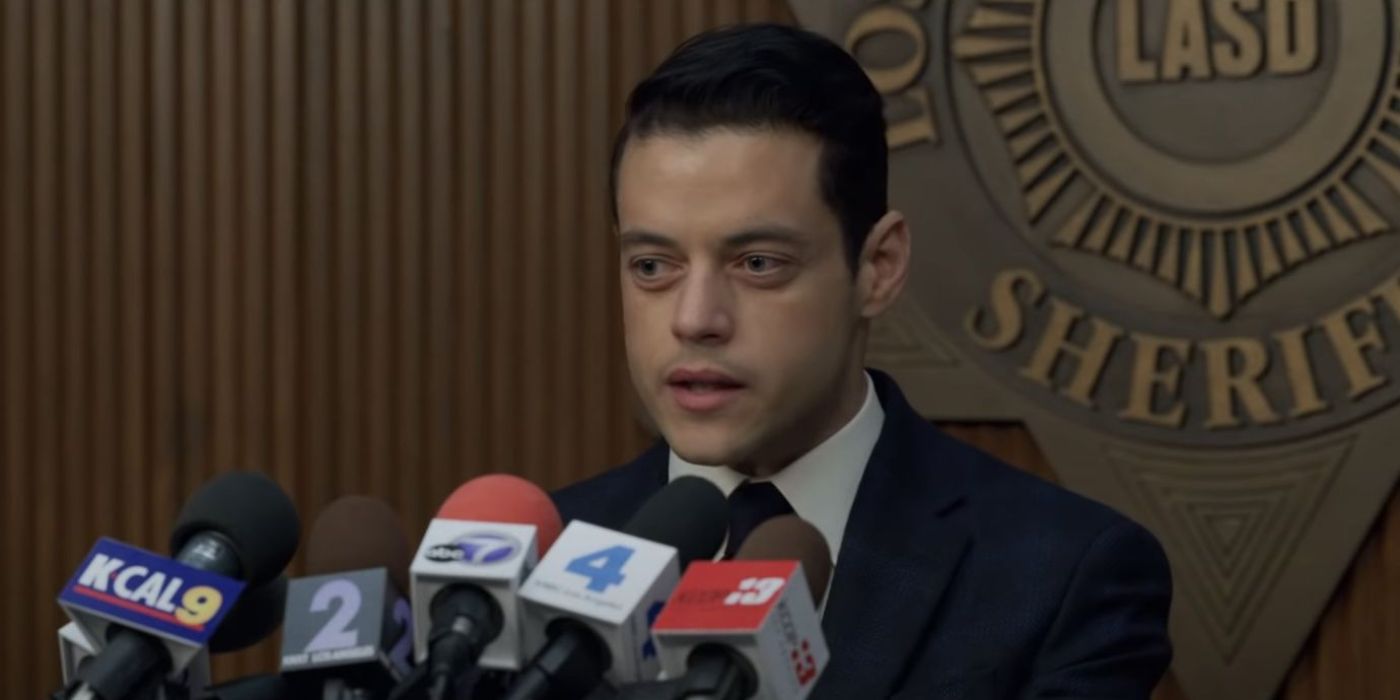Summary
-
The Little Things
subverts crime thriller expectations by focusing on characters over the killer’s identity. - Denzel Washington, Rami Malek, and Jared Leto lead a cat-and-mouse game of guilt and obsession in the film.
- Director John Lee Hancock leaves the killer’s identity ambiguous to challenge genre conventions and spark debate.
Writer-director John Lee Hancock’s The Little Things ends by subverting the latent expectations of the crime thriller genre, diving deep into the fractured psyches of the primary characters instead. The Little Things‘ cast is headlined by Denzel Washington, who plays disgraced former L.A. cop, Joe “Deke” Deacon as he gets embroiled in a murder case during a routine evidence pickup. A notorious serial killer stalks the almost deserted streets of L.A. at night, preying upon vulnerable women, leaving Sergeant Jim Baxter (Rami Malek) hell-bent on catching the perpetrator. This leads them to their prime suspect, Albert Sparma (Jared Leto).
The Little Things‘ ending shifts the focus from the identity of the killer and chooses to focus on the inner world of Baxter and Deke instead. The dangerous cat-and-mouse game ends in a wasteland of guilt, regrets, and lingering questions. Sparma’s death leaves Baxter and Deke in a desperate place when it comes to solving the murder of Ronda Rathbun. As a result, The Little Things‘ controversial ending raises pertinent questions regarding loose ends, what it means for the characters, and more.
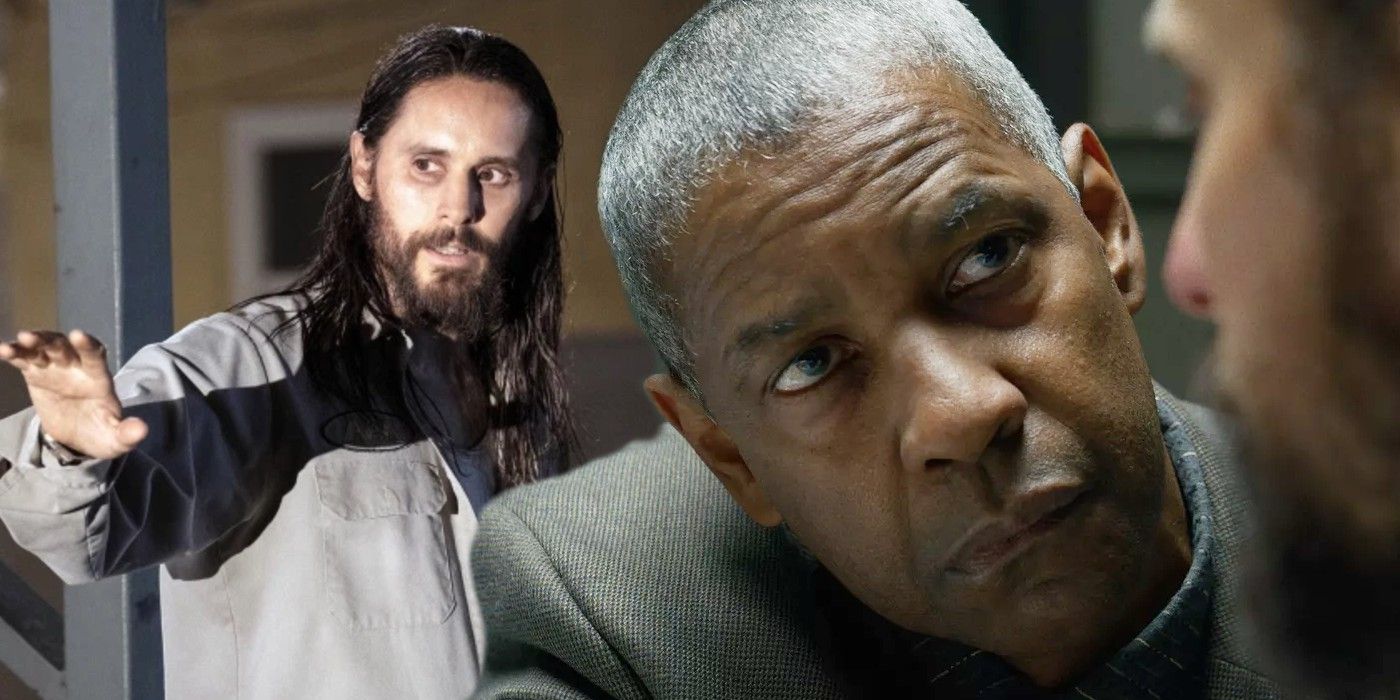
Related
The Little Things: Biggest Unanswered Questions After The Movie
The Little Things ends with numerous plot points that are left unanswered, including the true identity of the killer. Here are the biggest questions.
Why Jared Leto’s Albert Is The Prime Suspect: All The Clues He’s The Killer
Albert Sparma Fits The Mold Of A Killer
The killer in question in The Little Things seems to have a consistent modus operandi, wherein he attacks young, solitary women, leaving their posed corpses with multiple stab wounds and bite marks. After the killer leaves a partial print on a crime scene, in which the victim’s head is covered with a plastic bag, Deke and Baxter conclude that the victim knew the killer in some capacity. After some digging, Deke zeroes in on Albert Sparma, a lonesome, seemingly unhinged drifter, whose presence in the victim’s neighborhood is the first piece of evidence that Sparma is The Little Things‘ killer.
While the forensics team deems Sparma’s prints and dental records inconclusive, Deke and Baxter are convinced of his involvement based on a long line of circumstantial evidence. As Sparma fits the killer’s profile a little too snugly for comfort, Baxter decides to interrogate him with the intention of provoking a response or confession. On being shown the naked, bloodied corpses of the victims, it becomes apparent that Sparma derives sexual pleasure from the photographs, which angers Deke to the point that he loses control. This makes it clear that the entire ordeal is akin to a voyeuristic spectacle for Sparma.
Right up till the last minute of his role in The Little Things‘ ending, Sparma indulges the duo by acting suspiciously, leaving false trails, and taunting Baxter towards the end of the film. It is important to note that Deke and Baxter’s obsessive need to implicate Sparma arises from an innate urge for closure, which is further complicated by the trappings of guilt and the ghosts of the past. Unable to pin Sparma down for good via strictly legal means, Baxter and Deacon employ several off-the-book measures to try and prove Sparma is the killer, to no avail.
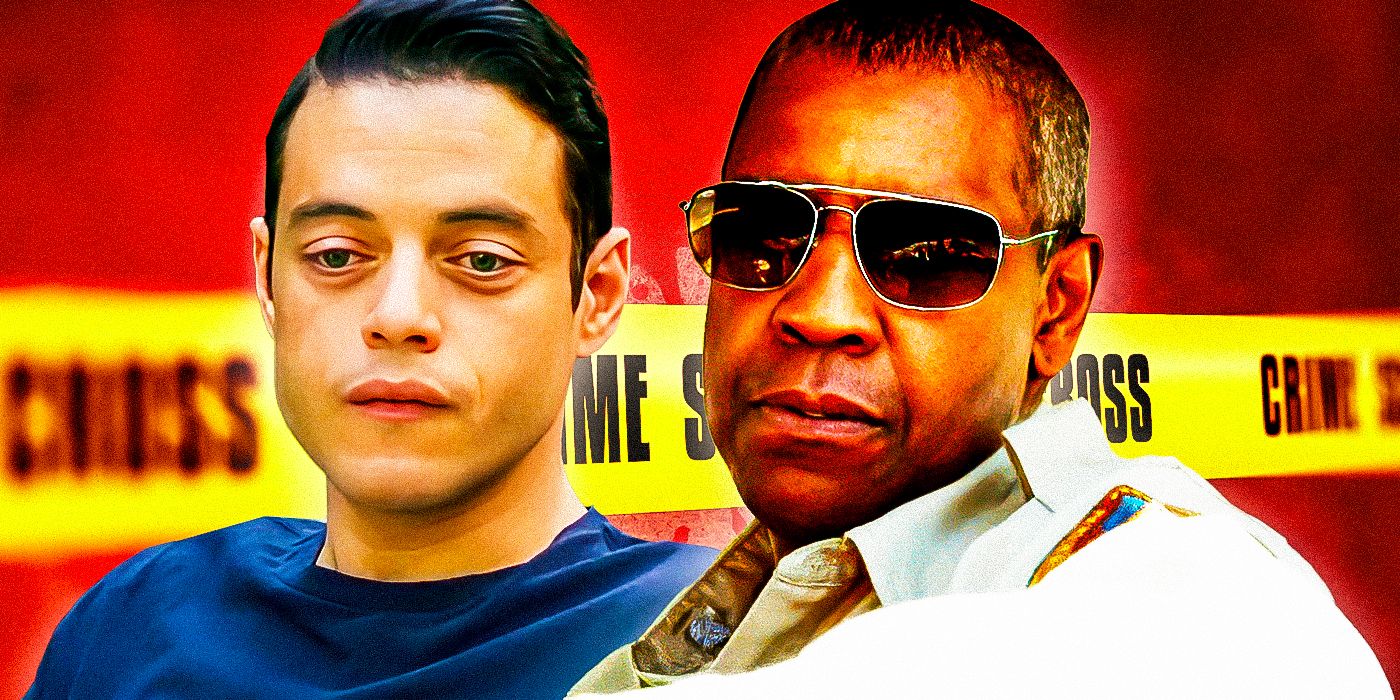
Related
Is The Little Things Based On A True Story? History & Influences Explained
The Little Things’ story follows detectives investigating a murder that seems like it is a true story. Here’s the truth about the movie’s influence.
What Happens When Baxter Confronts Sparma?
Sparma’s Tricks End With Baxter Making A Deadly Decision
The Little Things‘ ending builds to a final confrontation between Baxter and Sparma in the desert. Baxter finds himself face-to-face with a leering Sparma, who approaches the sergeant while Deke is away. Sparma claims to know where Rathbun’s body is buried in the middle of the Californian desert, and he repeatedly tells the young detective to dig in different spots. At this particular juncture, it becomes clear that Sparma is nothing but a dead-end, a mere creep enjoying a rise out of the desperate Baxter, who proceeds to go as far as saying:
How can you protect those two beautiful daughters of yours when you can’t even protect one of those poor girls or their families? This will go on and on and on, and there’s nothing you can do about it.
This is when something snaps, and Baxter kills Sparma after hitting him in the head with a shovel in The Little Things‘ ending. Deacon arrives on the scene soon after and orders Baxter to bury Sparma’s body among the many holes that have been dug. However, the shell-shocked and delirious detective keeps digging throughout the night, clinging to the hope that Rathbun’s body can still be found, as he is determined to prove to himself that he killed a serial killer. The film does not show what else happened, leaving audiences just as uncertain about whether Baxter killed Rathbun’s killer.
By having Baxter kill Sparma, The Little Things‘ ending shifts focus on the extent to which obsession and complicity can ruin the best of men, who begin to value emotional closure over the overarching justice system that affects thousands. Baxter’s ending is a stark contrast compared to where he starts the movie. He is hailed as a brilliant, by-the-book sergeant, who seems determined and poised under pressure while being thorough with his leads. This places Baxter’s actions in an especially macabre light, as the real killer is still on the loose, with the lives of innumerable Ronda Rathbuns at stake.
Why Joe Deacon Is Haunted By His Past
One Of Deacon’s Earlier Cases Went Wrong
The Little Things‘ ending also sheds light on Joe Deacon’s past and why he is perennially haunted by it and the ghosts of the victims he could not avenge. Several years prior to the main The Little Things murder case, Deacon was involved in a similar case up north, where two women were murdered in the woods. Sensing movement nearby, Deacon shoots without thinking, and it turns out to be the third victim, who had almost gotten away before being shot by him. The reveal that Deacon killed an innocent victim in the past directly mirrors Baxter’s actions.
Deacon is haunted by his past because his partner at the time helps him cover up the incident. This marks the beginning of Deke’s downfall, leading to a divorce, heart attack, and full-blown psychological breakdown. The guilt of killing an innocent girl manifests in disturbing ways, such as when the audience sees Deacon speaking soothingly to a victim’s corpse on the morgue slab and witnessing their phantoms in his dark, sordid hotel room. With Sparma’s murder, the cycle of violence and guilt repeats itself, with Deke helping Baxter cover up for his crimes.
Who Was The Killer? Why The Little Things Doesn’t Answer It
The Movie’s Biggest Mystery Goes Unanswered
Ultimately, The Little Things‘ ending delivers a final twist that leaves the killer’s identity unknown. Baxter receives an envelope containing a red barrette, which Rathbun was wearing when she disappeared, implying that Sparma was the killer. However, the movie reveals that this is a lie created by Deacon, who buys the barrette and sends it to Baxter to help him lose the guilt of murdering an innocent man. Baxter gets orchestrated closure for the unsolved mystery, while Deacon is left knowing the potential truth: Rathbun’s killer is still on the loose.
While The Little Things swims in the grey area of two well-intentioned men finding a semblance of peace despite their heinous actions, it poses a darker, pertinent question regarding the socio-political system at large. The high personal costs that both men are meant to shoulder do not justify their heinous actions or the repercussions of their respective cover-ups on the justice system. The film prioritizes their tragic inner landscapes over the true identity of the killer, which gets lost in the skewered emotional poetics of the film’s central figures.
When measured against the current sociopolitical environment in which cops already face little accountability for their unjustifiable, criminal actions, The Little Things‘ ending comes off as unsatisfying and irresponsibly shallow. It even paints the initially revered figure of Denzel’s character in a much more sinister light, sparking theories that Deacon is The Little Things‘ killer. He becomes a man who is willing to overlook the facts and possibly even the greater good if it means absolving personal guilt for others.
There are no plans for a sequel to
The Little Things
, despite the fact that a sequel would prove additional insight.
What The Little Things’ Ending Really Means
History Repeats Itself
“It’s the little things that get you caught”, Deacon muses to Baxter, when the two starts working together to catch the killer at the beginning of The Little Things. This phrase is repeated towards the end, when Deke helps Baxter cover up his crime, after which it assumes a whole new layer of meaning altogether. By playing into the hackneyed tropes of cyclic inevitability in the neo-noir genre, wherein the young, promising, morally scrupulous cop repeats history by aping the actions of the guilt-ridden, disgraced, older cop, The Little Things emerges as a limiting, dated period piece set in the ‘90s.
The Little Things‘ ending not only absolves Baxter of guilt but further feeds into his delusion that his actions were justified and that justice had been meted out. Moreover, by letting the real killer off the hook, Deacon jeopardizes the safety of innocent women, turning a blind eye to the repercussions of his actions as a police officer. After all, it is the little things, such as systematic complicity and guilt-ridden cowardice, that add up to monumental social evils that still haunt humankind today.
What Director John Lee Hancock Has Said About The Little Things Ending
He Leaves Most Questions Up To The Audience To Decide
Following the film’s release, director John Lee Hancock spoke about the many twists and reveals in The Little Things‘ ending during an interview with EW. He openly discussed what motivated him to create a crime thriller that does not definitively answer the question of who is the killer. Hancock said he wanted to “subvert [the genre] and come up with an ending that was less formulaic but hopefully just as satisfying and interesting.” As a major fan of crime and psychological thrillers, the director always intended for The Little Things‘ ending to go against some preconceived notions of the genres.
Hancock purposely left the debate about whether Sparma is the real killer vague and refuses to directly confirm it. He wrote the script with this intention in mind and made sure to leave just as many clues that Sparma is innocent as there are hints that he is guilty. Notably, he told Jared Leto, “I don’t know [if Sparma is guilty], and that’s not what the movie’s about.” Hancock confirmed that Leto felt he had to make a decision for himself to deliver a proper performance, but he told the actor, “I understand that completely, just don’t tell me.”
Furthermore, Hancock addressed The Little Things‘ ending and whether Baxter knows that the red barrette is a lie or fully believes that Sparma is the killer. Staying in line with the rest of his thoughts, Hancock refused to directly provide an answer, electing for each viewer to make a determination for themselves. The director still praised Rami Malek’s work in the scene, noting that he “played it beautifully,” after the two of them discussed what Baxter truly believed when filming.
How The Little Things Ending Was Received
The Ambiguity Of The Climax Didn’t Work In The Movie’s Favor
The Little Things received mixed reviews from critics, with the majority not being positive, though it was close to an even split between reviews that praised the movie and those that felt it missed the mark. The 2021 thriller is currently sitting at a 45% rating on Rotten Tomatoes, with a 67% audience score, which provides a great snapshot of the general response to director John Lee Hancock’s divisive film. The ending of The Little Things has cropped up in several reviews too, on both sides of the fence, with some feeling the ambiguity worked, while others felt it was something of a cop-out.
There have been those who enjoyed the fact that the thriller focused less on unmasking the murderer and more on the personalities and journeys of those involved in the case, but generally speaking, the ending of
The Little Things
wasn’t received all that well.
THR reporter David Rooney claimed that “the director’s generally taut original screenplay settles on an ending too cryptic to be fully satisfying”, which succinctly sums up the general negative responses to the ambiguity rife throughout The Little Things ending. However, Rooney did then go on to praise several aspects of the wider film, especially the performance of the cast. This has been a theme throughout the bad reviews for The Little Things, and the consensus seems to be that a structurally sub-par narrative was carried by talented actors and some impressive cinematography.
Ultimately, Rooney’s assessment wasn’t universal, and there were critics who appreciated the fact that The Little Things didn’t identify the killer. What’s more, as the Rotten Tomatoes score shows, audiences did warm to the film slightly more than critics (though, it has to be said, not by much). There have been those who enjoyed the fact that the thriller focused less on unmasking the murderer and more on the personalities and journeys of those involved in the case, but generally speaking, the ending of The Little Things wasn’t received all that well.
Source: EW
